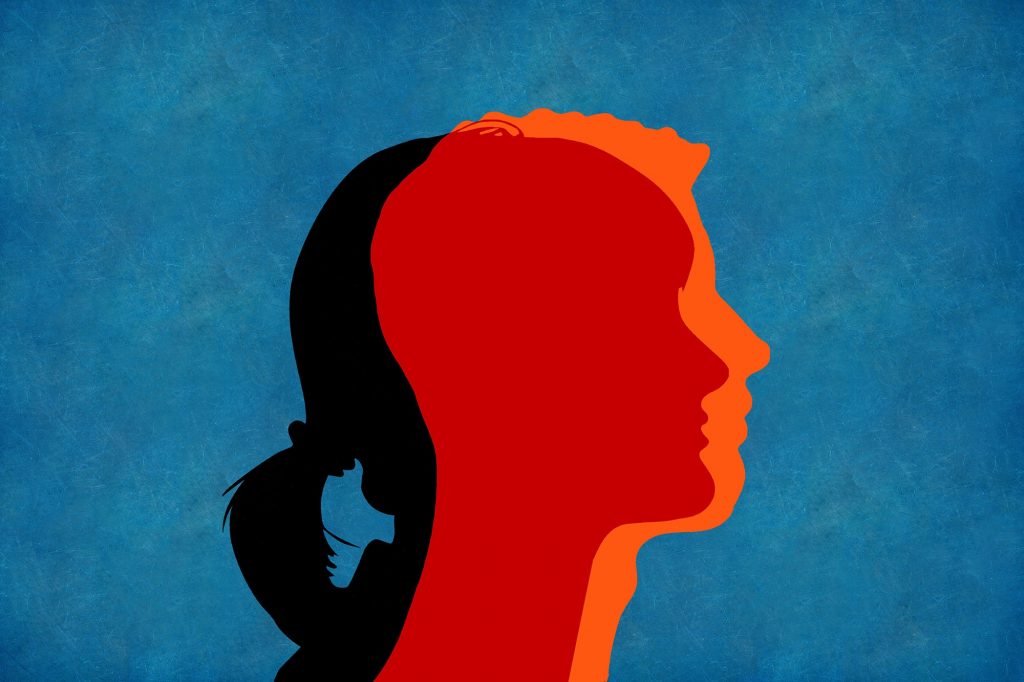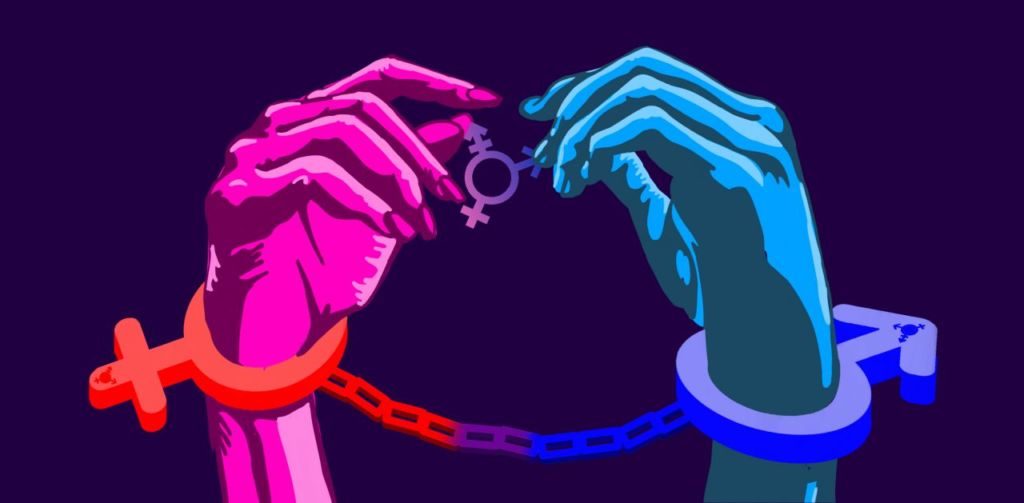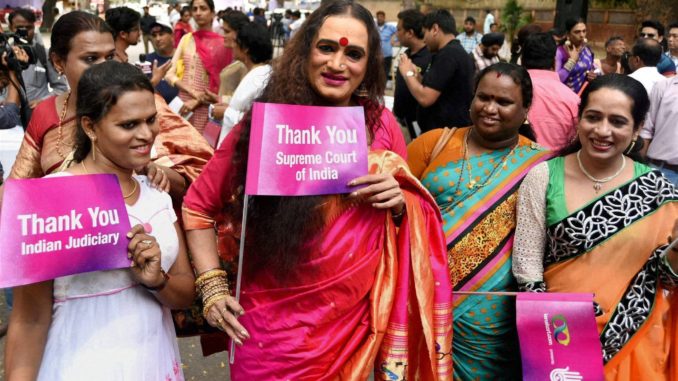
In India, Eunuchs- a castrated male, also known as transgender or Hijra, are the person who is recognized neither as male nor woman. They are a different gender altogether and one of the most overlooked and unjustly marginalized classes in Indian society. At Hindu births and weddings, eunuchs or hijras are supposed to perform dances, songs, and blessings as their sacred religious duty. Many Hindus believe that eunuchs have incredible divine power.
In contrast to this, Hindus are also afraid of being cursed by the hijras. Hijras have been treated with both fear and respect. Activists state that these people live on the outskirts of society, mostly in poverty, and are shunned due to their gender identity. The majority of them make a living by singing and dancing, as well as begging and prostitution. Human Rights organizations say that they are often subjected to severe discrimination and are required to identify as either male or female in most public spaces. The eunuch community is spread throughout India, with the majority living in western and northern states, while some also living in southern states. However, in some states, such as Tamil Nadu, Kerala, and Odisha, transgender people are recognized as the third gender.
The article talks about the rights of eunuchs and discusses the hardships faced by them in their day-to-day life. It further describes the legal and fundamental rights available to the third gender and further discusses different landmark judgments.
It is revolutionary for any trans person to choose to be seen and visible in a world that tells us we should not exist.
Laverne Cox
Hardships faced by Eunuchs in Indian Society

Eunuchs are always looked down upon and, beyond the ceremonial responsibilities, they are always exempt from work and education. As a result, they are often impoverished and forced to rely on begging and prostitution to make ends meet. They are also the victims of violence and harassment, as well as being abused by cops and denied medical care, they are not treated as a patient and even mocked and verbally abused. Eunuchs have been barred from participating in social and cultural life, as well as in the politics and decision-making frameworks.
They are greeted rudely, and the people often use masculine terminology, which they find insulting. They even face challenges within their families. When a child starts understanding the changes occurring to his body which is not normal, they talk about it to the family members, many do not accept it and give shocking, sad, and upset reactions, whereas some can be fearful and disappointed. Family members start thinking about society and the embarrassment which they will face in society.
However, they do not understand their child when he needs their support and, the child overthinks and feels helpless that often leads to depression and suicide. Eunuchs are not counted separately in the census; they are usually counted as males, though they may be counted as women if they request for it. There is no accurate data of the eunuch people. According to one estimate, India has about two million transgender people. They are the most neglected and uncounted community, which makes their survival difficult in society.
Legal Recognition and Rights of Eunuchs

In April of 2014, in the case of National Legal Services Authority v. Union of India, the Supreme Court of India legally identified eunuchs or hijras as the third gender as citizens entitled to the same rights as everyone else and prohibit discrimination against them.
The Supreme Court of India stated, “it is the right of every human being to choose their gender”, and that recognition of the group “is not a social or medical issue, but a human rights issue.” It was a landmark decision in which the apex Court the Supreme Court ruled that transgender people are covered under the Indian Constitution, which stated third-gender have fundamental rights. Justice and dignity must be ensured to all without any bigotry on the grounds of sexual identity.
Puttaswamy Judgment, 2017, Arun Kumar Judgment, Naz Foundation v Government of NCT Delhi are some of the cases regarding recognition and rights of the Eunuchs.
Fundamental Rights
The Constitution of India in its Part III bestows upon the people certain rights and freedoms, such as –
Article 14 –
The State shall not deny to any person equality before the law or the equal protection of the laws within the territory of India. In terms of employment, health care, schooling, and civil rights, they are on an equal footing. Discrimination based on sexuality and gender identity is illegal and violates Article 14.
Article 15 –
The State shall not discriminate against any citizen on grounds only of religion, race, caste, sex, place of birth, or any of them. This clearly states that any discrimination against any person shall be punishable. Third-gender people cannot be discriminated against and they have equal access to public toilets and places of entertainment.
Article 16 –
Equality of opportunity in matters of public employment. Transgender people are not afforded the same career prospects as their gender-identical counterparts. Third-gender people also have the mind and intelligence and potential to learn and earn. Under Article 16, they are given the right to the opportunity to get themselves employed and earn their livelihood.
Article-19 –
Protection of certain rights like freedom of speech, form associations, and unions, meet peacefully without arms. Article 19 is the most important right given to any citizen in India. People suppress the voice of the third gender and often they get harassed and even raped.
Article 21 –
Protection of life and personal liberty. Third-gender people have the right to be treated with dignity and respect in society. It also covers the right to a dignified life. The life of a transgender is as valuable as the life of any male or female. They have their personal space, liberty, and view which should be respected by everyone.
Transgender Persons (Protection of Rights) Act, 2019
The Transgender Persons (Protection of Rights) Bill, 2019 was presented in Lok Sabha on July 19, 2019, by the Minister for Social Justice and Empowerment, Mr. Thaawarchand Gehlot. The bill aims to establish rights of eunuchs and a framework for transgender people to gain social, physical, and educational empowerment and cover the following objectives –
- Defines the transgender
- Right of residence
- Certificate of Identity
- Prohibition against discrimination
- Offenses and penalties are imposed to safeguard transgender from any kind of abuse and forced labor.
- Health care
- Welfare measures like providing rehabilitation centers, vocational training, and promoting their participation in cultural activities.
- Set up National Council for Transgenders (NCT) to redress the grievances, making policies and legislation concerning the transgender.
This act has certain demerits as well.
- Marriage, adoption, and social security benefits were not listed
- Reservations are not allowed in public education or jobs.
- Surgery clause
- Overlooked the decision taken historic judgment NALSA v. Union of India (2014)
- The punishment tenure for the crime committed against transgender is only two years that is unfairly less than the tenure for the other male/female.
- There is no clause in the bill for gender self-determination. The certificate of identity has been debated by the transgender community.
Other cases wherein Eunuchs have been recognised
- In the year 1994, the passport Authority of India stated, that passports can be issued to any citizen regardless of their sex and gender. Eunuchs were given the option to fill their gender as ‘E’ instead of either ‘M’ or ‘F’ in passport forms.
- On November 12, 2009, the Election Commission of India established a distinct identity for transgender and eunuchs. Instead of pretending to be male or female, they can identify as ‘Others’ in electoral positions. Also, in 2011, the government took steps to count the third gender in censuses for the first time. The form of the census has the check box for the third- gender also.
- The Indian Railway Catering and Tourism Corporation (IRCTC) has included transgender as a third choice in ticket reservation and cancellation forms, alongside male and female, to combat widespread discrimination against the transgender society.
Conclusion
The introduction of the third gender law for transgender people is a milestone for humanity and a lesson that everyone is equal and acceptable as they are. Eunuchs in India are a part of Indian society and the beautiful creation of God. It needs the courage to be grown as who you are and to become a new you.
A famous quote by Mahatma Gandhi is best fitted to the struggle of trans people in society – “First they ignore you. Then they laugh at you. Then they fight you, and then you win.” It is a time for us to stand with transgender Indians in their fight for identity, equality, and dignity. One way to do this is to increase awareness about them and the challenges they face. We should all work together to create a fairer and more just world where everyone is treated with respect. Parents who begin to accept their transgender children can see that there is nothing wrong with them. The main issue is with the mindset of society, which should be changed. They are proficient in doing wonders but all they need is love and support.
Editor’s Note
The author in this article talks about the rights of eunuchs and discusses the hardships faced by them in their day-to-day life. The author further describes the legal and fundamental rights available to the third gender and further discusses different landmark judgments. The article then discusses the Transgender Persons Act, 2019, and looks at the merits or demerits of the act. The author finally concludes that everyone has a right to equal life and the third gender law is a good step in the right direction. However, more needs to be done to help change how they’re treated by society.